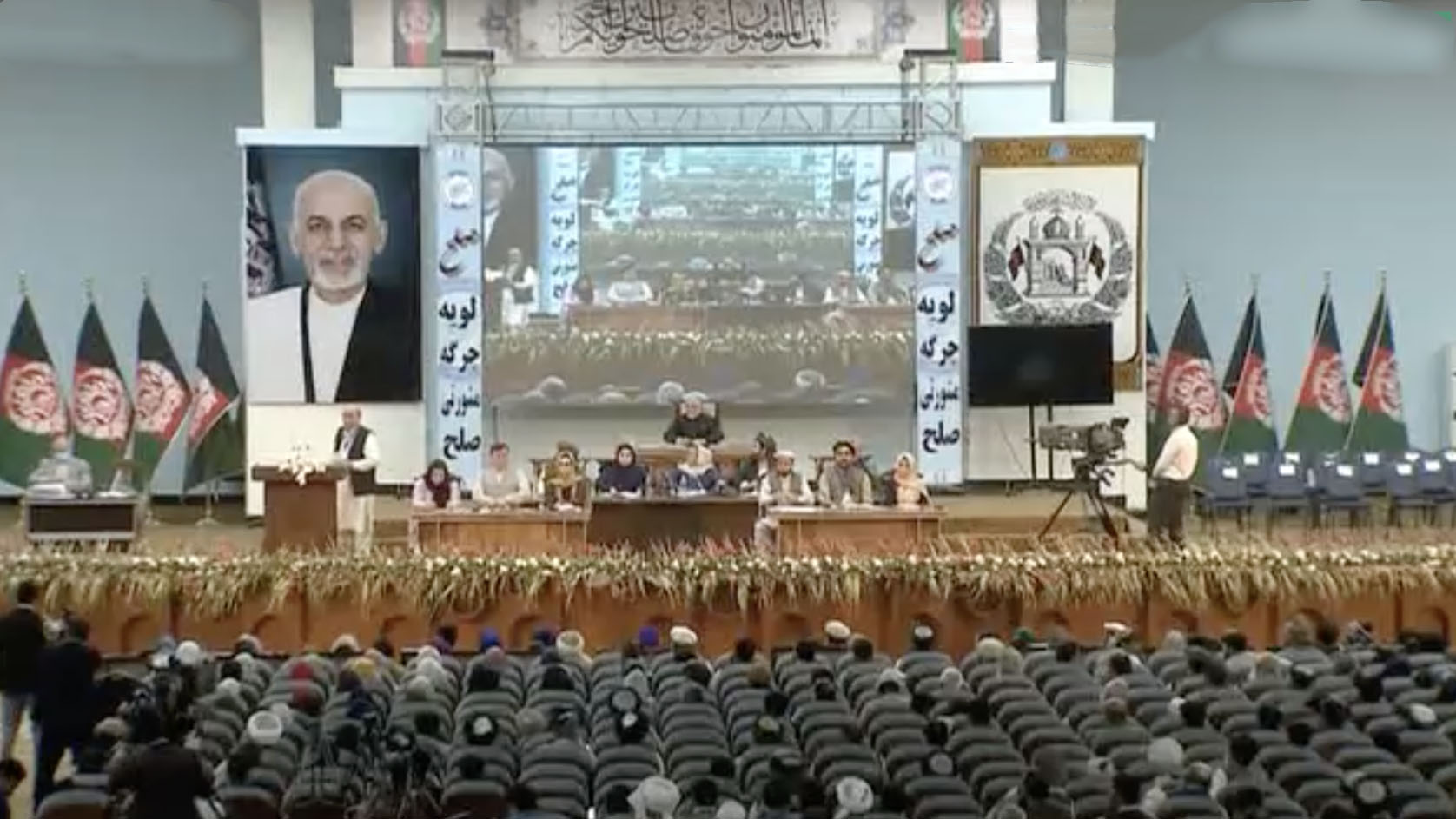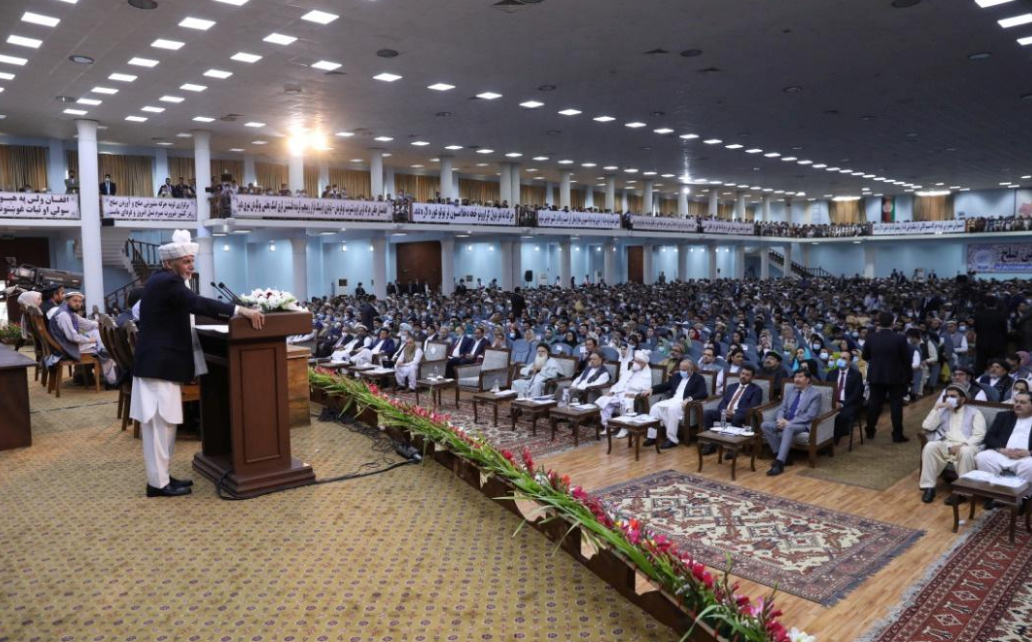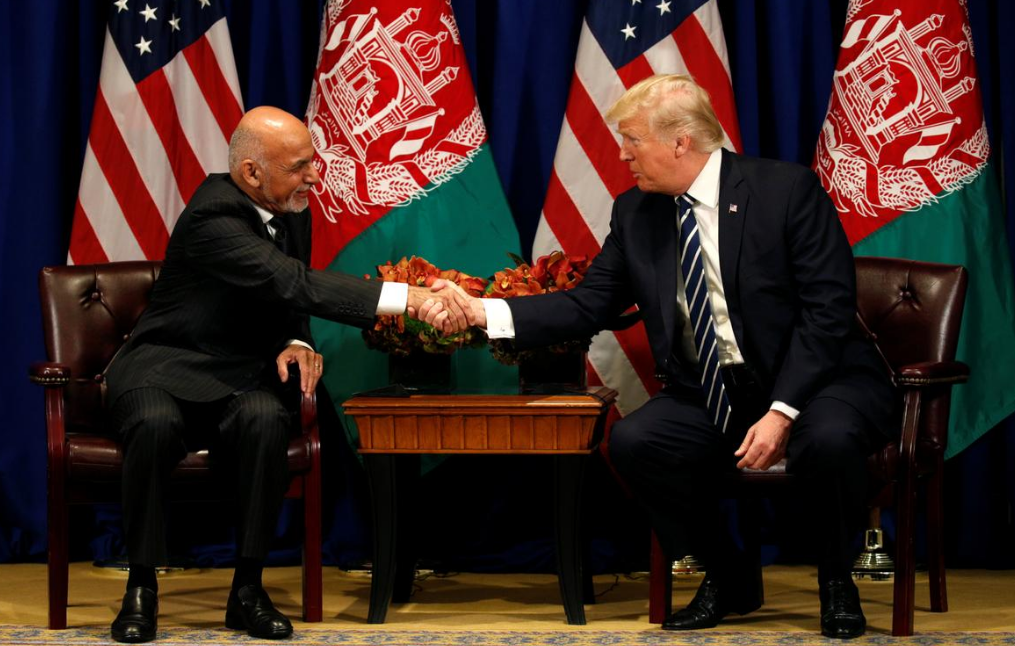02:02

Afghanistan's grand assembly, known as the Loya Jirga, approved on Sunday the release of 400 "hard-core" Taliban prisoners that Kabul had been reluctant to authorize, overcoming the last hurdle that has been blocking the start of intra-Afghan peace talks.
"In order to remove an obstacle, allow the start of the peace process and an end of bloodshed, the Loya Jirga approves the release of 400 Taliban," the assembly said in a resolution.
President Ashraf Ghani also agreed shortly after.
The three-day Loya Jirga, mainly organized for discussion of controversial national issues, had been convened by Ghani in the Afghan capital. Some 3,200 Afghan community leaders and politicians gathered Friday amid tight security and concerns about the COVID-19 pandemic to advise the government on whether the prisoners should be freed.

Afghanistan's President Ashraf Ghani speaks during a consultative grand assembly, known as Loya Jirga, in Kabul, Afghanistan August 7, 2020. /Reuters
Afghanistan's President Ashraf Ghani speaks during a consultative grand assembly, known as Loya Jirga, in Kabul, Afghanistan August 7, 2020. /Reuters
Both Kabul and the Taliban pledged in a February pact to complete a prisoner exchange before the intra-Afghan talks can begin. So far, Kabul has already freed 4,600 insurgents. With the upcoming release, Kabul will fulfill its pledge that a total of 5,000 Taliban fighters will be released and meet the conditions that the Taliban have set for entering talks.
"The Taliban have said that if the 400 prisoners are released the direct talks between our negotiating team and the Taliban will start three days later," Ghani said in his pitch to the assembly delegates before Sunday's decision was reached. "In the meantime, they have threatened that if they are not released, not only they will continue their war and violence but they will escalate it."
The U.S. State Department also released a statement Thursday urging the participants to remove "the last obstacle to the start of intra-Afghan negotiations." In reassuring participants of the assembly, it said: "Following the timely release of these prisoners, the Taliban have committed to enter talks with the national team representing the strength and diversity of the Islamic Republic of Afghanistan."
Though the action did gain approval from the large consultative body, its delegates appear to believe that because of the persistent U.S. pressure, the Afghan government already made up its mind and was set to free the Taliban captures. According to the New York Times, many participants said convening the assembly was Ghani's way to share his political responsibility, while some representatives also complained that they were asked of their recommendations on the issue without being offered details of what the prisoners were accused or convicted of.
The Afghan government's previous reluctance to free the 400 remaining insurgents, who were all demanded to be released by the Taliban, was given official reasons such as the severity of the crimes they have committed and the government's ineligibility to offer forgiveness on behalf of foreign victims' families. However, being uncooperative on the matter was believed to be more of a maneuver that Ghani has deployed to show his decisions are unconstrained by both Taliban violence and U.S. pressure, a posture he feels compelled to make as the U.S. rush to peace has deeply undermined the Afghan government.

U.S. President Donald Trump meets with Afghan President Ashraf Ghani during the U.N. General Assembly in New York, U.S., September 21, 2017. /Reuters
U.S. President Donald Trump meets with Afghan President Ashraf Ghani during the U.N. General Assembly in New York, U.S., September 21, 2017. /Reuters
The Trump administration, eager to bring all soldiers home, has hastened to accelerate troops withdrawal in the face of November's presidential election. On Saturday, Defense Secretary Mark Esper said that by the end of November the number of U.S. troops in Afghanistan will be cut to less than 5,000. This comes amid a phased withdrawal that has begun after the February agreement and has already brought the U.S. troops' number down to 8,600 from over 13,000.
Rights groups say the process should be driven by considerations other than the U.S. election cycle.
"The priorities should be the rights of victims for justice, and due process rights of those in detention," said the Human Rights Watch in a statement.
As U.S. troops are being gradually pulled out of Afghanistan, Ghani is losing his leverage over the peace process. For him, further delaying the release may risk witnessing the entire withdrawal of U.S. forces before actually sitting down with the Taliban.
The expected negotiation between Kabul and the Taliban has not yet been scheduled, but diplomats and officials believe it will take place next week in Doha.
Despite a peace prospect on the horizon, violence in Afghanistan has not abated. Taliban militants have continued to stage major attacks on government personnel and civilians are still bearing the brunt of the decade-long conflict. In the first six months of 2020, over 880 security incidents have taken place and more than 1,200 civilians have been killed in the country.
Last year alone, more than 10,000 civilians were killed or injured, putting total casualties in the past decade over 100,000.
Ahead of the Loya Jirga, Human Rights Watch cautioned that many of the prisoners had been jailed under "overly broad terrorism laws that provide for indefinite preventive detention."
"This idea to forgive and forget war criminals is very depressing for me," Mohammed Jafar, an Afghan whose three brothers were killed in a suicide bombing in 2016, told Reuters. But hoping for peace, he said, "If peace comes to this country, then here I am, forgiving those who killed my brothers."